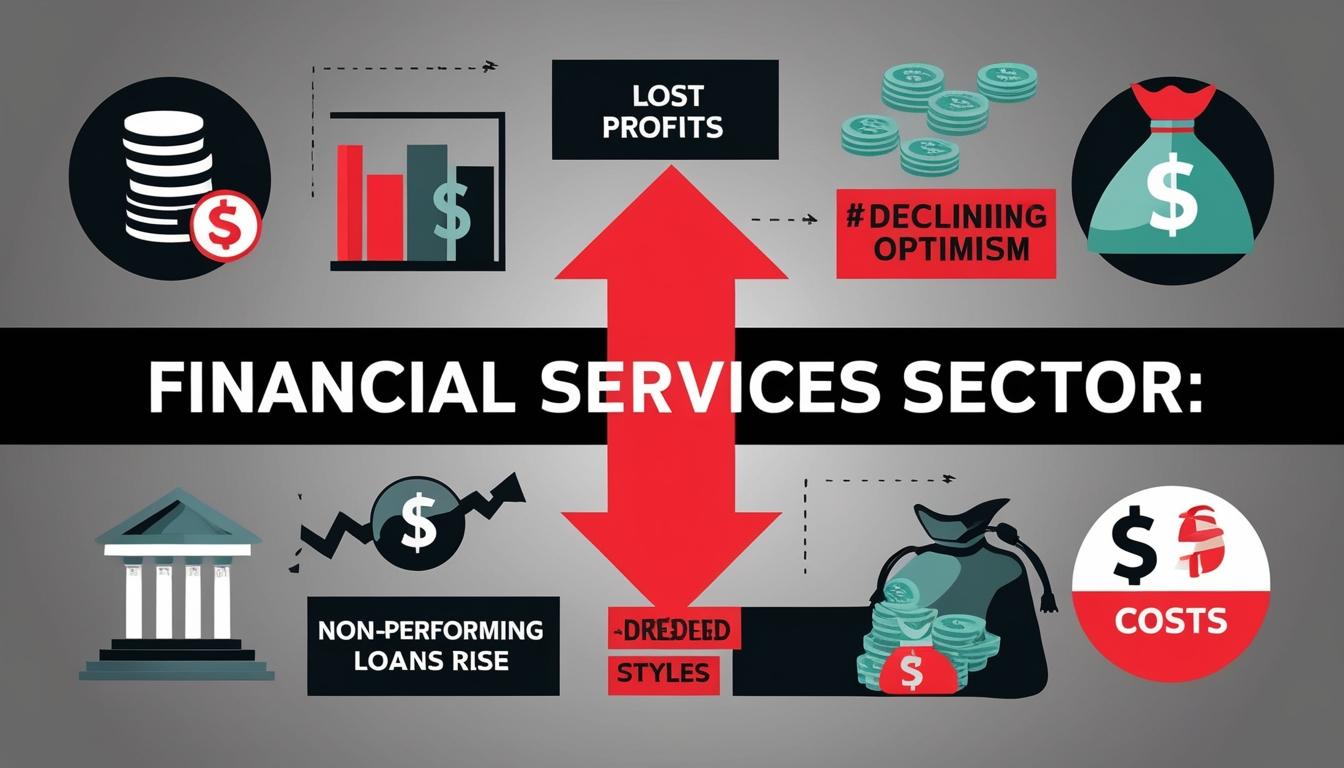Recent findings from the CBI Financial Services Survey have revealed a significant shift in sentiment within the financial services sector, with optimism witnessing its fastest decline since September 2022. The survey, conducted between 21 November and 9 December 2024, reports that despite an increase in business volumes during the quarter ending December, firms are bracing for a challenging financial environment ahead.
The survey indicated that confidence among financial services firms has waned considerably, with the weighted balance dropping to -28%, a stark decline from -13% noted in September. This downturn appears to be linked to concerns over rising costs, particularly those stemming from the Autumn Budget. Louise Hellem, CBI Chief Economist, stated, “FS firms faced a challenging end to 2024, marked by a record-fast decline in spreads and the quickest increase in non-performing loans over three years.”
In contrast to the declining optimism, the report highlighted a notable increase in business volumes, which surged by 32% in the quarter to December following a modest increase of 6% in the preceding quarter. Expectations for business volumes remain upbeat, with firms predicting a continued growth rate of 32% over the following three months. However, financial spreads fell sharply during this period, decreasing by a record 62%, and are anticipated to decline further but at a slightly slower pace of 57% in the coming quarter.
The survey also revealed a concerning trend regarding non-performing loans, which rose by 18%, the highest rate since March 2021, and firms expect this figure to continue climbing at a similar rate of 21% in the next quarter. Profitability also fell, recording a loss of 14%, although this represents a lesser decline compared to the 43% reported in September. Nevertheless, firms are projecting a steeper decline in profitability over the next three months, anticipating a drop of 55%.
In terms of employment, headcount in financial services is experiencing a downturn, with a 25% reduction noted in the quarter to December, compared to a 15% decline in September. Companies expect this trend to persist, forecasting a further decrease of 26% in the next quarter.
Investment intentions have presented a mixed outlook, with many firms citing “other” factors as key constraints on their capital expenditure plans. Approximately two-thirds of respondents expressed concerns that rising costs associated with the Autumn Budget would likely hinder investment decisions in the upcoming year. While firms indicated a willingness to enhance IT investment, projections for spending on land, buildings, and machinery are expected to contract.
Hellem commented that “the survey also highlighted widespread concerns among firms about the potential drag on investment from rising costs following the Autumn Budget.” She emphasized the need for a comprehensive financial services strategy and the full implementation of Mansion House reforms to stimulate growth in the face of global uncertainties.
Overall, the current trends in the financial services sector suggest a complex interplay between increased business volumes and declining sentiment, shaped by broader economic pressures and cost concerns. Firms will be closely monitoring the unfolding financial landscape as they navigate these challenges.
Source: Noah Wire Services
